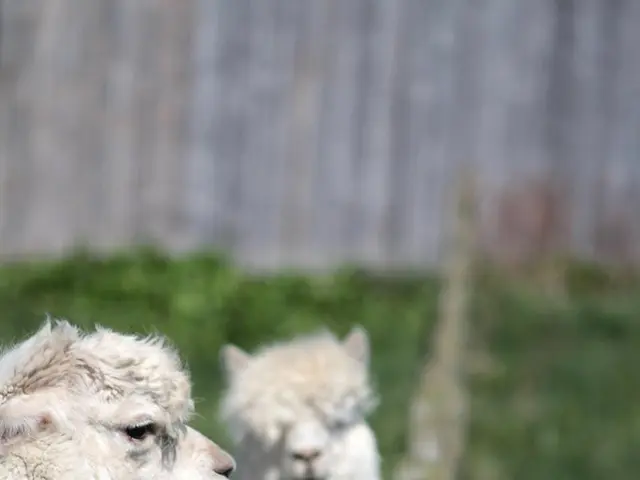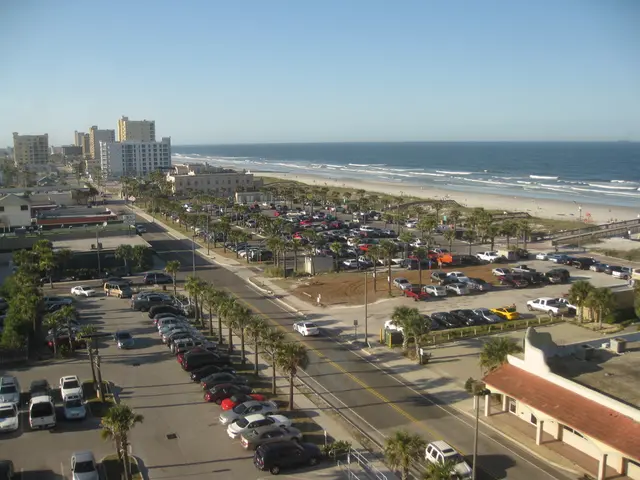Austrian Ski Tourism Under Fire by Italian Environmental Protection Group
Downhill with Caution: A Clash Over Sustainability in the Alps
scandal surrounding the Italian environmental association, Legambiente, and Austria's beloved ski industry is causing a stir. The Italian group has slapped Austria with a black flag, labeling the country's pursuit of expanding ski areas in Tyrol as irresponsible and detrimental to the environment, particularly to the remaining glacier surfaces in the Eastern Alps.
In a press release, Legambiente's General Director, Giorgio Zampetti, voiced his concerns, urging Austrian ski resorts to align with eco-friendly practices. Legambiente has been presenting both green and black flags annually to Italian regions, the former for implementing sustainable projects, and the latter for environmental negligence.
Austria Stands its Ground
Austria's Tourism State Secretary, Elisabeth Zehetner (ÖVP), dismissed the accusations, stating that Austria's winter tourism sector has nothing to hide. She emphasized the significant progress the country has made towards sustainability over the past few decades, arguing that sustainability isn't about giving up, but making conscious choices.
Zehetner pointed out that 90 percent of the electricity used for snowmaking comes from renewable energy sources, and only 0.07 percent of Austria's available water resources are used, making claims of plundering inaccurate. Zehetner encouraged critics to base their opinions on facts and praised Austria's achievements, stating that the country is setting an example for a harmonious coexistence between winter sports and nature conservation.
The Italian Alps: A Sustainable Showcase
In 2025, Legambiente recognized the efforts of 19 regions and destinations in the Italian Alps with green flags. Piemont and Friuli-Venezia Giulia led the pack with four green flags each, followed by Lombardy, Veneto, Trentino, South Tyrol, and Aosta Valley with three, two, and one green flag, respectively.
Sustainability: Shades of Green and Black
Despite Italy's progress, the association also awarded nine black flags to towns in the Alpine region deemed noncompliant with sustainability standards. Friuli-Venezia Giulia received the most black flags (3), followed by Piemont, Aosta Valley, Trentino, South Tyrol, and Veneto, each with one black flag.
While Austria's SkiWelt continues to lead as a global pioneer in sustainability with innovative practices like solar lifts, energy-recovery systems, optimized snowmaking systems, and free buses, Italy's specifically detailed sustainability measures trail behind the innovations seen in France and Switzerland. France is targeting carbon neutrality via hydrogen-powered grooming and advanced climate modeling, while Switzerland is forging ahead with climate adaptation projects for snow reliability.
Amidst the ongoing controversy, it seems that the future of winter sports and nature conservation within the Alps remains up in the air, with both countries striving to strike a balance between economic growth and environmental preservation.
- The black flag presented by Legambiente to Austria, a beloved skiing destination in the Tyrol region, signifies a condemnation of the country's expansion of ski areas, perceived as harmful to the environment, particularly the remaining glacier surfaces in the Eastern Alps.
- Austria's Tourism State Secretary, Elisabeth Zehetner, defends the country's winter tourism sector, asserting significant progress in sustainability and arguing that sustainability is about making conscious choices, not giving up.
- In contrast to Austria, the Italian Alps have been recognized for their sustainability measures, with 19 regions and destinations receiving green flags from Legambiente in 2025.
- Although Italy has made strides in sustainability, it still lags behind innovative practices in France and Switzerland, with France targeting carbon neutrality and Switzerland focusing on climate adaptation projects.
- Yet, Austria's SkiWelt continues to set an example for sustainability with initiatives like solar lifts, energy-recovery systems, optimized snowmaking systems, and free buses.
- The controversy over sustainability in the Alps emphasizes the need for a balance between economic growth and environmental preservation, a challenge that both Italy and Austria are grappling with in their winter sports industries.








